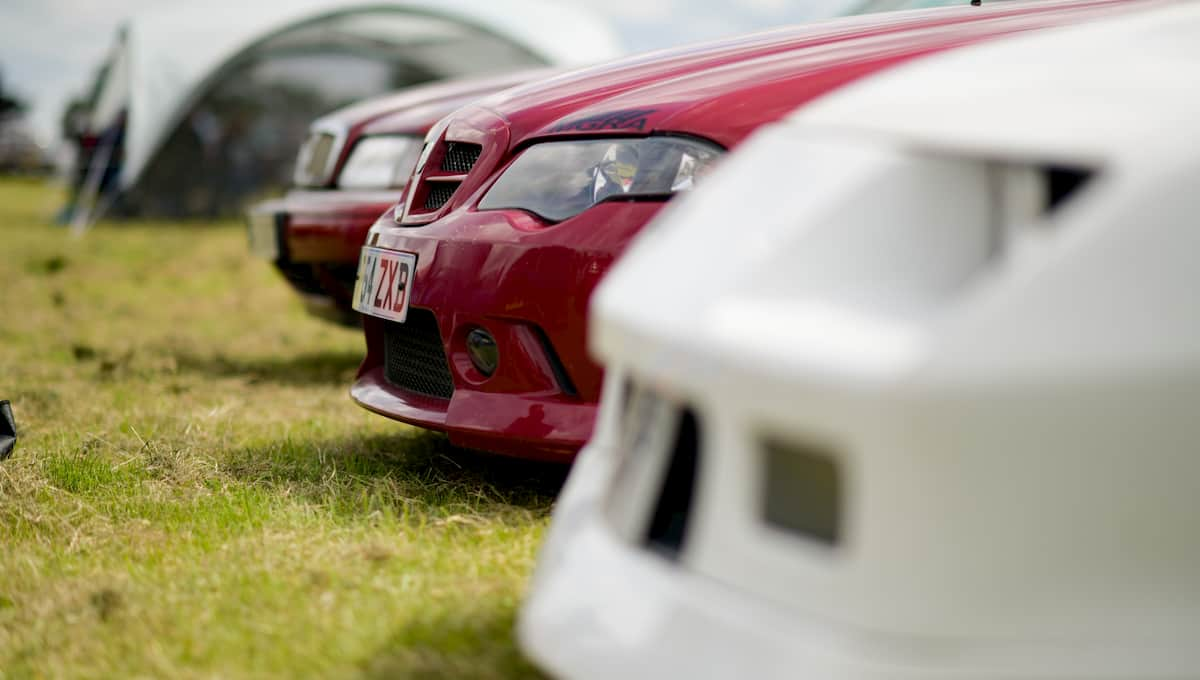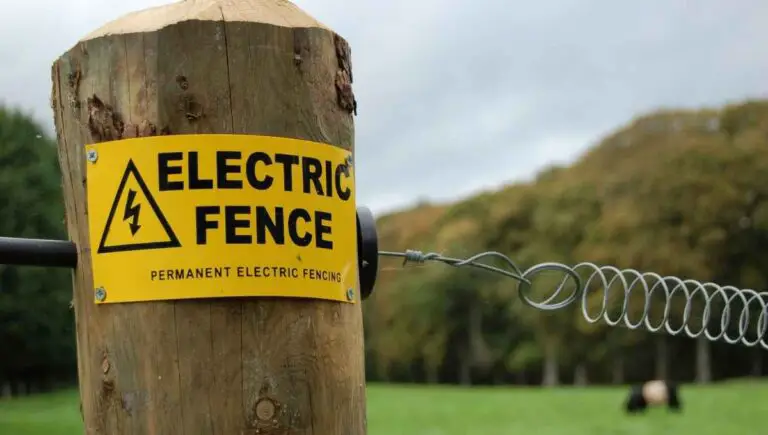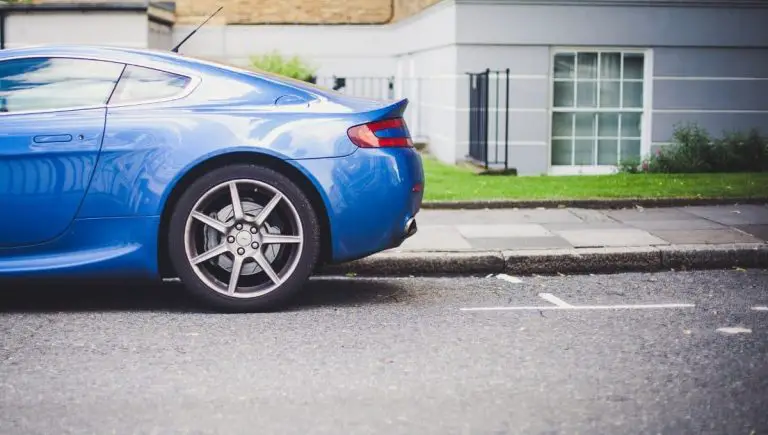Can You Park Cars In Your Backyard: Is this Illegal?

If you’re used to parking in your yard, it’s time for you to stop that practice. Sure, you’re leaving your car on your own property, so you might think, “what can go wrong?” The truth – is, there’s a lot. You might now be asking, “can you park cars in your backyard?”
Generally, you cannot park cars in your backyard. Additionally parking on your front lawn or on any grass portion is prohibited, even if it’s part of the property. Most cities in the U.S. have this ordinance enacted for safety and aesthetic reasons.
If you’re one to have trouble finding a parking spot and resort to parking on your lawn, be warned. You could get in trouble with the law, pay a fine, and contribute to the negative appeal of your neighborhood. Read on to know more about lawn parking regulations and why you should avoid it.
Can I Park My Car In My Backyard?
Parking problems are common for homeowners. When there’s nowhere left to park, it’s easy to go for the lawn. It’s convenient, it’s readily available and it’s yours. However, you should keep in mind that it’s a big no-no to park in your backyard.
Backyard parking is easily an option for property owners whose house is located on a corner lot. And since it’s at the back of your house, you would easily think it’s not a problem to leave your car in your backyard.
Most city ordinances and the homeowners’ association will not allow this. However, in some cities, this is not a problem, only if you cover your vehicle and it won’t be seen from the street. Some forums even advise parking in your backyard, especially if you have good neighbors you can trust won’t report you.
If the uncertainty makes you uncomfortable and you don’t want to take the risk, it’s best to talk to your home association or contact your local council to confirm the legalities.
Is It Illegal To Park Your Car On Your Front Lawn?
Parking in your backyard is generally considered illegal. The same thing can be said about parking on your front lawn. However, there are instances when parking temporarily and infrequently on the front lawn is permissible. These include:
- Unloading and loading passengers
- Washing your car and vehicle maintenance
- Delivering or picking up of goods, especially to the area on the lot where you parked your vehicle
Homeowners are also given about one hour per week to park on a lawn. This is best used when loading and unloading items.
Keep in mind that you need to be actively involved in either of the tasks mentioned above. According to parking in front yard ordinance, you’re not in active involvement if you left your car for five minutes or more.
Can You Park Your Car On Your Lawn?
Not only is it illegal to park in your backyard but it’s also prohibited to do it on your lawn. Depending on where you live, the rules may differ on how it was written but generally, it means that you can’t park on the front, side, or backyard of a residential lot.
When you’re in a residential lot, you need to have a parking space (garage) or a driveway. The driveway or garage is referred to as an “improved surface” in some codes. The surface should be paved, assuming that the paving was previously approved by your local council.
The driveway also needs to be made of concrete or asphalt. A gravel driveway is also acceptable but it could also depend on where you live. Take the rules on parking on a residential lot set by the city of Texas for example. A gravel driveway can be used but only if that gravel parking area existed before Sep. 27, 2007.
It is also worth noting that the prohibition of lawn parking applies not only to cars but also to other vehicle types. These include a boat, trailer, personal water craft, recreational vehicle or any motor-powered vehicle.
Why Can’t I Park On My Lawn?
When you own the property, it’s easy to wonder why you can’t ever park on your own lawn. This becomes an even greater problem if you live in an area with lots of houses with many residents, but only fewer garages and driveways.
It’s easy to think it’s nobody’s business where you will park your car, especially if you choose to park on your lawn. But for homeowners’ association, parking cars on lawns signifies a low taste. It ruins the overall appeal of the neighborhood.
But the more important thing to consider is that lawn parking prohibition is a law put in place by the city council. It was done to maintain a neighborhood’s aesthetic appeal thereby improving its values, as well as preserving underground infrastructure.
To have a better understanding, here are reasons why you can’t park on your lawn:
- Accommodate emergency vehicles – You may think parking on your lawn is the most convenient thing to do. However, doing so can hinder emergency vehicles from getting close to your property, which is necessary to save a life.
- What’s underground? – As mentioned, there is a need to protect some important utility lines that may be lying underground. You may not know this since you don’t get to see it. However, this is one of the more important reasons why you should not leave your car on the lawn or yard.
- Preserver the appeal of the neighborhood – Many people would view a park car on a lawn a nuisance and an eyesore. It is generally unsightly and it could even lower the property values. In addition, you would be damaging the grass lawn or even create mud patches if you park every day for longer periods of time. This would easily add to the unsightliness.
Is Parking Cars On Grass Illegal?
One of the reasons parking is prohibited on lawns is that it ruins the neighborhood appeal. This is especially true for grass lawns. So yes, it is illegal to park cars on grass, just as it is illegal to park on the front yard, backyard or side yard.
In a residential area, vehicles should only park on legally approved driveways or the garage. For families who have more than one registered vehicle, there is an overnight parking permit to remedy that. So you have two options to avoid getting fined for illegal lawn parking: one is to park in the garage or on the driveway or secure an overnight parking permit from the city hall.
If you don’t have a driveway or parking place on your property and you wish to build one, you need to at least keep 40 percent of lawn, whether it’s just grass or with landscaping.
Can You Park Cars On Grass?
Instead of investing in paving a new parking spot, homeowners would want to just take the grass lawn and turn it into a parking space. This is especially true if they own more cars than what their driveway or garage can accommodate.
But you can’t park cars on the grass. What really happens when you leave your car for long on grass is that it results in hardening of the area. Consequently, this interferes with the ability of grass and soil to absorb rain runoff.
What’s worse is that when the car oil is leaking and you have a soft ground that can still absorb, the oil will seep into the ground, polluting the public water supply.
Can You Get A Ticket For Parking On Your Own Lawn?
You may wake up one day to find that a parking ticket has been placed on your windshield. So, is it illegal to park your car in your yard? Yes, and as mentioned earlier, you can get fined for it.
The amount you will pay will depend on your location. A person caught parking on lawns or yard will face a misdemeanor charge and will have to pay a fine.
Conclusion
Just because you own a property doesn’t mean you can do whatever you want with it however you please. So, can you park cars in your backyard? You certainly can’t leave your car on the lawn or yard, regardless if it’s located on the front, side, or back.
It is against regulations to park your car on your lawn for safety and public reason. They are put in place to be on the safe side, such as avoiding fire hazard from a hot engine parked on dry grass. It is also to prevent oil or other harmful chemicals from seeping to the ground, polluting water sources.
Lawn parking prohibition is also put in place to preserve the appeal of a neighborhood. The only time parking on your yard will be allowed is during pickup and deliveries of goods but only for a very short time. If you own more cars than what your driveway can accommodate you need to make a compromise.
The most decent solution to parking problems in your neighborhood is to find the closes spot to home, whether it is one or two blocks away. If not, you can spend money to make an extra garage or driveway.






